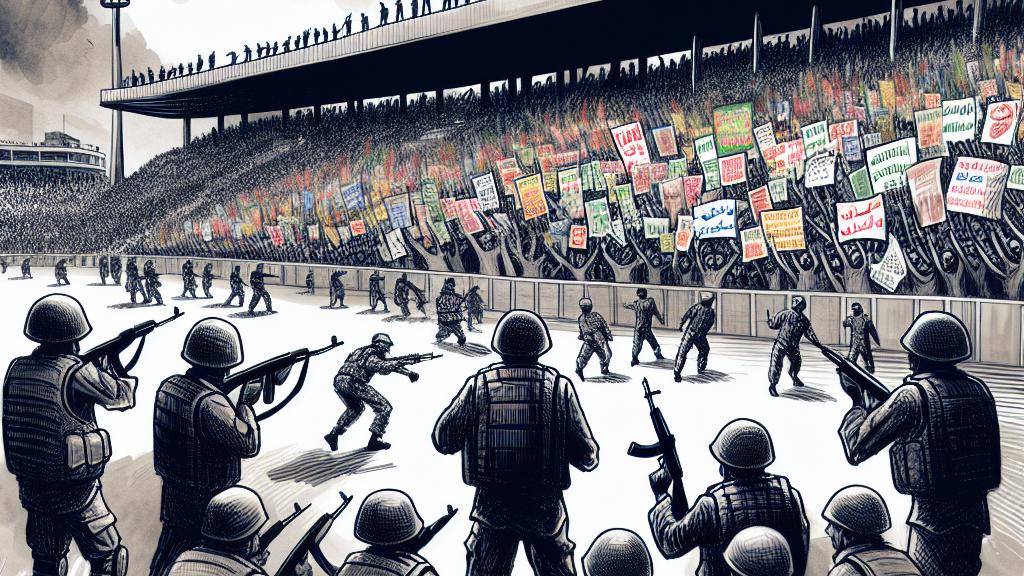Extradition of Claude Pivi: Justice for the Guinea Stadium Massacre
Overview
- Colonel Claude Pivi, a central figure in the heart-wrenching 2009 Guinea stadium massacre, has been extradited from Liberia after months of evasion.
- Now back in custody, he faces a life sentence, stirring hope and anger among the victims and their families still grappling with the aftermath.
- This crucial extradition amplifies ongoing demands for justice, shedding light on the resilience of those affected and their unwavering fight for accountability.

Dramatic Background on the Massacre
On a tragic day in September 2009, a peaceful rally in Conakry, Guinea, turned deadly. Tens of thousands of opposition supporters gathered at a stadium, their voices echoing a demand for change and a return to civilian rule. However, this hopeful gathering morphed into chaos as soldiers unleashed gunfire on unarmed citizens, resulting in over 150 deaths and countless women experiencing horrific sexual assaults. Such acts of brutality were not just senseless violence; they reflected the grim reality of a regime unwilling to tolerate dissent. The harrowing memories of that day linger, leaving families shattered and a community craving justice. Notably, many survivors bravely stepped forward to share their stories, turning their trauma into a powerful call for accountability.
Claude Pivi's Role and His Recent Extradition
Colonel Claude Pivi, the former minister of presidential security and a primary architect of these heinous acts, managed to escape the long arm of the law for several months following his dramatic prison break. His capture in Liberia has been a pivotal moment in the quest for justice. Images of him—emaciated and handcuffed—paint a stark contrast to the terrifying power he wielded during the massacre. When news of his extradition broke, it sent ripples of hope through the survivor community, reigniting flames of passion for justice that had been dimmed by years of waiting. Families, once torn apart by loss, now feel a renewed determination to ensure that those responsible for the atrocities of 2009 are held accountable and that their loved ones did not perish in vain.
The Ongoing Fight for Justice
Pivi's return to Conakry is more than a simple legal maneuver; it's a powerful reminder that the battle for justice is far from over. Survivors and victims' families, who have long endured the pain of unanswered questions, view his extradition as a crucial step toward reconciliation. However, despite progress, many remain disheartened by the slow pace of justice. The sentences awarded to some military officials have been met with skepticism; survivors feel that these outcomes do not adequately reflect the gravity of the crimes. One poignant voice from a victim’s family echoed, "The wounds may heal, but the scars of injustice will remain forever embedded in our hearts." This enduring struggle symbolizes a broader fight against impunity in Guinea, emphasizing that this chapter in history serves as a reminder of the need for enduring vigilance. Each stride towards justice is not just an act of retribution, but also a beacon of hope for a future where human rights are respected and protected.

Loading...